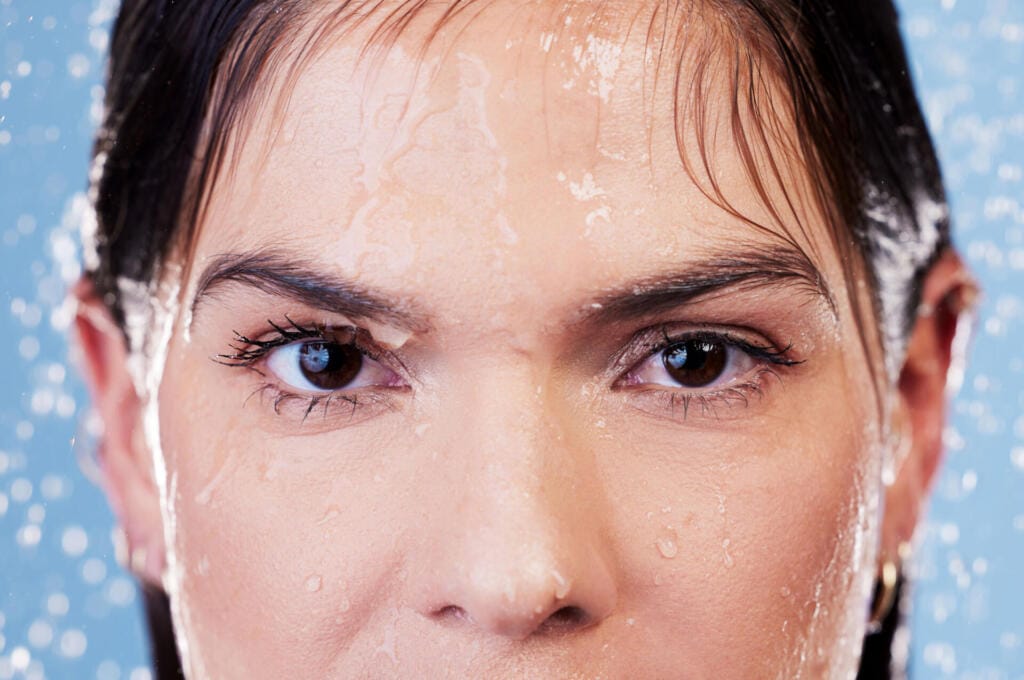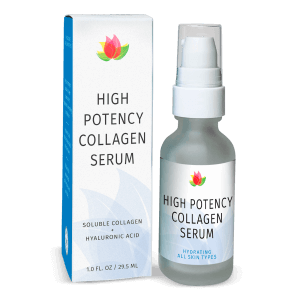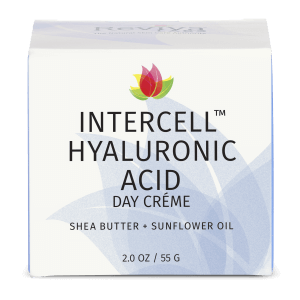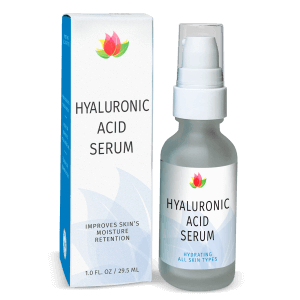Ingredients, Reviva Labs
What Is Hyaluronic Acid Skin Care?
Hyaluronic acid is having a moment. But this isn’t just a trendy buzzword in the beauty world—it’s a skincare powerhouse that dermatologists and skincare enthusiasts alike swear by. In fact, research has shown that hyaluronic acid can hold up to 1,000 times its weight in water, making it one of the most effective moisture-binding ingredients out there. But what makes hyaluronic acid so special? And why has it become a must-have in so many skincare routines?
If you’ve ever felt like your skin was as dry as the Sahara, or maybe you’ve struggled to keep it plump and dewy, hyaluronic acid could be the hydration hero you’ve been searching for. Let’s explore the world of hyaluronic acid skincare and why it should have a prime spot on your bathroom shelf.
The Power of Hydration: What Exactly is Hyaluronic Acid?
Hyaluronic acid (HA) is a naturally occurring substance found in the human body, particularly in your skin, eyes, and joints. It plays a crucial role in retaining moisture and keeping your tissues well-lubricated. As we age, our natural production of HA decreases, leading to that dreaded dryness, loss of firmness, and those fine lines we all love to hate.
The beauty of hyaluronic acid in skincare is that it’s a humectant. A humectant is a substance that attracts moisture from the surrounding environment and draws it into your skin. This helps keep your skin hydrated and plump, giving it that youthful, radiant glow that everyone seems to be chasing. If you’ve ever noticed that your skin looks more supple after applying a serum or cream containing hyaluronic acid, that’s not just your imagination—it’s the HA doing its job.
Now, I know what you might be thinking: isn’t acid harsh on the skin? Interestingly, hyaluronic acid is anything but. It’s actually quite gentle and suitable for all skin types, including sensitive and acne-prone skin. Its ability to hydrate without clogging pores makes it a go-to ingredient for anyone seeking balanced moisture.
How Does Hyaluronic Acid Work?
When you apply hyaluronic acid topically, it sits on the skin’s surface, creating a barrier that locks in moisture. But the real magic happens when HA penetrates the skin and starts drawing water from deeper layers, or even from the air around you (which is why it’s particularly effective in humid environments). This influx of hydration not only plumps up the skin but also improves its elasticity, making it look smoother and more vibrant.
It’s worth noting that the molecular weight of hyaluronic acid can affect how it works. Lower molecular weight HA penetrates deeper into the skin, providing long-lasting hydration from within, while higher molecular weight HA sits on the surface, delivering immediate but more superficial hydration. Many skincare products contain a mix of to provide hydration at multiple levels.
Why Is Hyaluronic Acid Essential for Your Skincare Routine?
If you’re serious about achieving healthy, glowing skin, you need hydration—plain and simple. Dehydrated skin can exacerbate a host of issues, from premature aging to dullness to increased sensitivity. Hyaluronic acid is a game-changer because it addresses dehydration at its root, ensuring your skin gets the moisture it needs.
But it’s not just about quenching your skin’s thirst. Regular use of hyaluronic acid can actually improve the skin’s natural barrier function. A stronger barrier means your skin is better protected against environmental stressors like pollution and UV damage, which can lead to premature aging. By keeping your skin hydrated and strengthening its defenses, HA works to prevent fine lines and wrinkles before they even start.
There’s also evidence to suggest that hyaluronic acid can speed up wound healing. A study published in The Journal of Clinical and Aesthetic Dermatology found that HA can help accelerate tissue repair, making it a beneficial ingredient for those dealing with acne scars or other skin damage. Not only does it hydrate, but it also supports skin regeneration—a true multitasker.
The Science Behind Hyaluronic Acid’s Moisture-Retaining Abilities
Let’s dig into why hyaluronic acid is so effective. As I mentioned earlier, this molecule can hold an astonishing amount of water—up to 1,000 times its weight, to be precise. This is no small feat. Think of hyaluronic acid as a sponge that holds onto moisture and slowly releases it to keep your skin consistently hydrated throughout the day.
This is why HA works so well in serums and creams, especially when layered with other hydrating products. It acts as a reservoir of moisture, ensuring that your skin stays hydrated even in harsh conditions, such as dry climates or when exposed to air conditioning or heating.
But what about oily or acne-prone skin? You might assume that adding more hydration to an already oily face sounds like a recipe for disaster. However, oily skin often becomes overproduced in response to dehydration. By replenishing the skin’s moisture with HA, you’re actually helping to balance oil production, resulting in clearer, less congested skin.
How to Incorporate Hyaluronic Acid into Your Routine
Now that we know hyaluronic acid is a moisture magnet, how should we use it? It’s all about layering—something skincare aficionados love to talk about. Here’s the best way to incorporate HA into your skincare routine:
- Cleanse: Start with a gentle cleanser to remove any impurities. This preps your skin to absorb all the good stuff you’ll apply next.
- Apply a Hyaluronic Acid Serum: After cleansing, apply your HA serum to damp skin. This is important—since hyaluronic acid draws moisture from its surroundings, damp skin gives it more water to pull in. A dropper of HA serum is usually enough to cover your entire face and neck.
- Moisturize: Follow up with your favorite moisturizer to lock in the hydration. Look for creams that also contain emollients and occlusives, which work with hyaluronic acid to form a barrier that prevents moisture loss.
- Seal with Sunscreen: If it’s daytime, always apply sunscreen as the final step in your routine. UV rays are one of the leading causes of skin damage, and hyaluronic acid can’t do its job if your skin is being compromised by the sun.
While hyaluronic acid can be used both morning and night, many find it particularly beneficial during the day, as it keeps skin hydrated in all kinds of environmental conditions. And don’t worry—it layers well with other active ingredients like vitamin C, niacinamide, and retinol, so you don’t have to worry about clashing products.
Hyaluronic Acid Myths Debunked
Even with all the hype, there are a few misconceptions about hyaluronic acid that need clearing up. One common myth is that it can make your skin drier in certain conditions. It’s true that HA draws moisture from the environment, so in extremely dry climates, there might not be enough water in the air for it to pull in. However, when applied to damp skin and sealed with a good moisturizer, hyaluronic acid will continue to provide hydration regardless of the environment.
Another myth is that hyaluronic acid can’t do much for aging skin. In reality, while it may not “erase” wrinkles, it certainly helps minimize their appearance by plumping up the skin and improving elasticity. Regular use of HA can help prevent fine lines from becoming deeper, which is why many dermatologists recommend it as part of an anti-aging regimen.
How to Choose the Right Hyaluronic Acid Product
With so many products on the market, it can be overwhelming to decide which hyaluronic acid product is right for you. Should you go for a serum? A moisturizer? A sheet mask? The good news is you don’t have to choose just one. You can layer different HA products to maximize hydration.
When selecting a product, look for the percentage of hyaluronic acid in the formula. A concentration between 0.5% and 2% is considered ideal. Also, check if the product contains a mix of molecular weights. As we mentioned earlier, different weights target different layers of the skin, ensuring both immediate and long-lasting hydration.
You’ll also want to pay attention to the other ingredients in the product. If you have sensitive skin, avoid products with fragrances, alcohols, or other potential irritants. For those with acne-prone skin, look for non-comedogenic formulas that won’t clog your pores.
Finally, don’t be afraid to experiment. Not every HA product will work the same for everyone. It might take a little trial and error to find the perfect fit for your skin.
The Bottom Line on Hyaluronic Acid Skincare
In the world of skincare, hyaluronic acid stands out as an essential, science-backed ingredient that delivers real results. It’s suitable for all skin types, easy to use, and incredibly effective at maintaining moisture. Whether you’re dealing with dry, aging skin or simply looking to enhance your glow, hyaluronic acid deserves a spot in your routine. With the right products and application, you’ll be well on your way to achieving the hydrated, healthy skin you’ve always wanted.
So, next time your skin feels parched or lacks that dewy bounce, reach for a product with hyaluronic acid. You’ll be amazed at the difference it makes!











